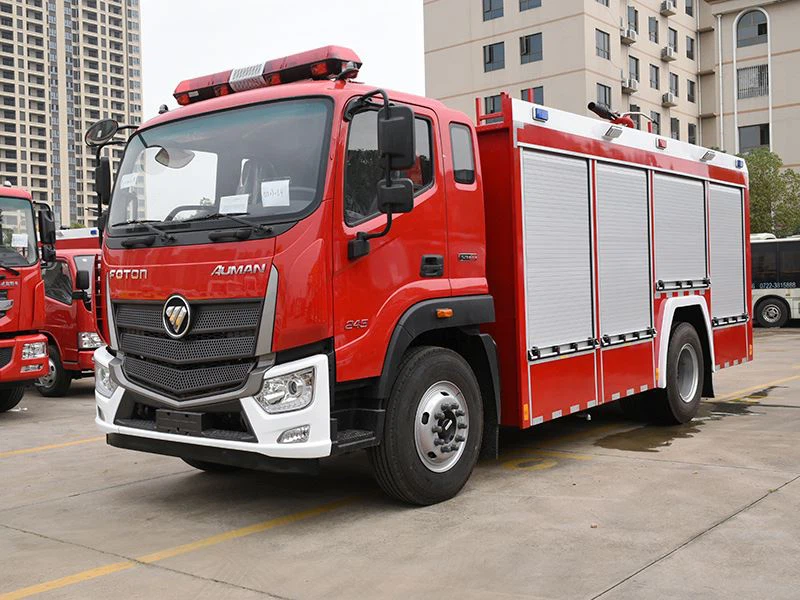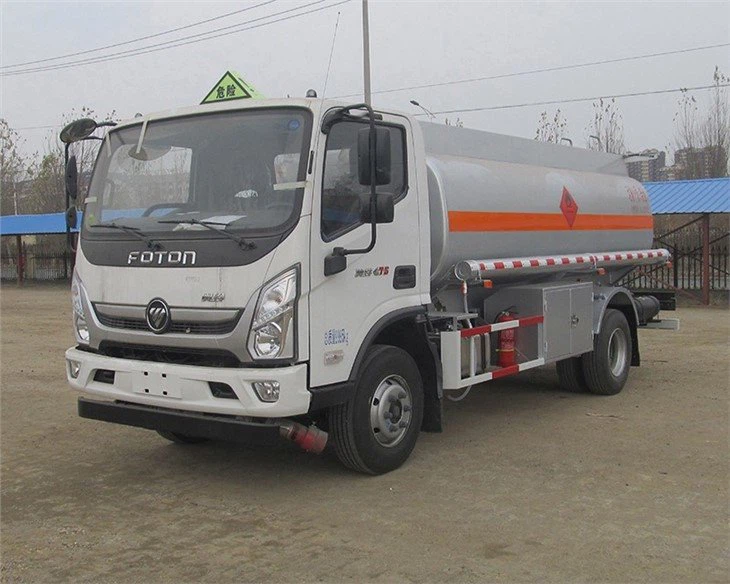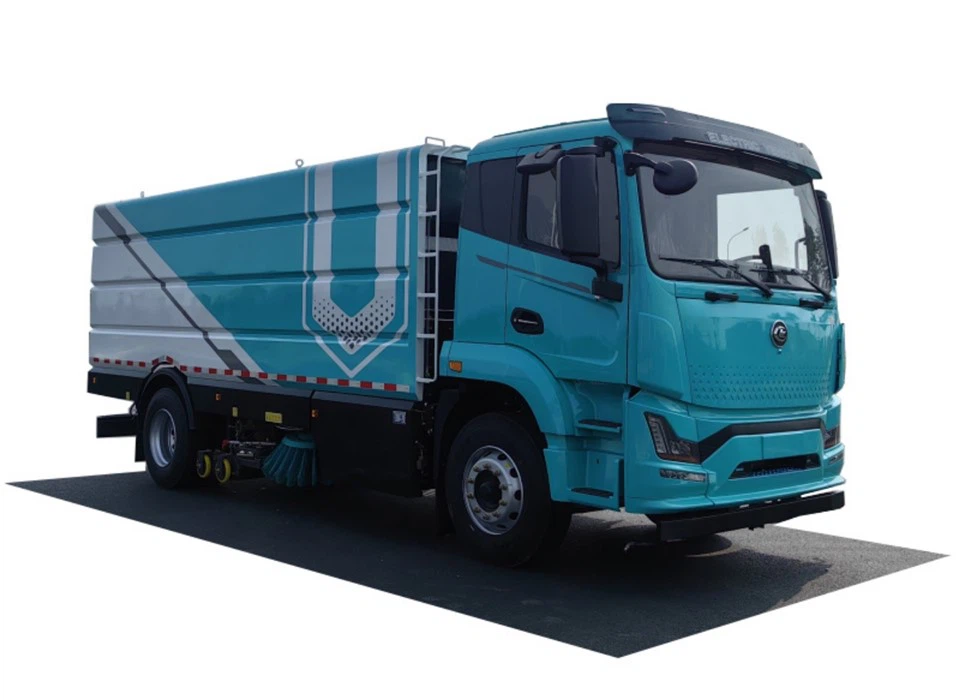Understanding Garbage Bin Trucks: A Comprehensive Guide

Introduction
Garbage bin trucks, an essential component of waste management systems, play a crucial role in maintaining cleanliness and sanitation in urban and rural areas alike. These specialized vehicles are designed to efficiently collect, transport, and dispose of waste materials, ensuring that communities remain tidy and healthy. This article delves into the various aspects of garbage bin trucks, including their types, functions, technology, buying guides, maintenance tips, environmental impact, and future trends. Whether you are a city planner, a waste management professional, or a curious citizen, this guide will equip you with valuable insights about garbage bin trucks.
Types of Garbage Bin Trucks
1. Rear Loader Trucks
Rear loader trucks are designed for collecting waste from residential areas. With an opening at the back, these trucks allow garbage collectors to lift bins and empty them into the vehicle.
2. Front Loader Trucks
Front loader trucks are commonly used in commercial waste collection. These trucks feature a front-mounted scoop that can lift large dumpsters and bins. Their design is suited for heavy-duty tasks and can handle bulk waste efficiently.
3. Side Loader Trucks
Side loader trucks feature an arm mechanism that extends out to pick up garbage bins from the side. This design allows for collection straight from the curb, minimizing the need for manual lifting by workers.
4. Roll-Off Trucks
Roll-off trucks are specially designed for large waste containers or dumpsters. They have a flatbed that can roll the container onto the truck bed, making them essential for construction sites and large-scale waste disposal.
How Garbage Bin Trucks Work
Garbage bin trucks operate using a simple yet effective mechanism for waste collection. Below are the main steps in the process:
Step 1: Collection
The truck arrives at designated collection points, where it collects waste using its unique mechanism (rear, front, or side loader). Collectors either manually or automatically lift bins and dump the waste into the truck.
Step 2: Compaction
After loading, garbage bin trucks often compact the waste material to maximize space. This feature is particularly important for maximizing collection efficiency, allowing the truck to hold more waste before heading to the disposal site.
Step 3: Transportation
Once the truck is loaded and compacted, it transports the waste to a processing or landfill facility, ensuring safe and hygienic disposal.
Technology in Garbage Bin Trucks
1. GPS and Routing Software
Modern garbage bin trucks are often equipped with GPS systems that optimize routing, minimizing fuel consumption and improving collection efficiency.
2. Automated Systems
Many trucks now feature automated loading systems that reduce the need for manual labor, increasing safety and efficiency during waste collection.
3. Smart Sensors
Smart sensors in garbage bin trucks can detect bin fullness levels and adjust routes based on demand, leading to more efficient operations and reduced missed collections.
Environmental Impact of Garbage Bin Trucks

Garbage bin trucks play a significant role in environmental conservation. Here are some ways they impact the environment:
1. Reducing Landfill Waste
By efficiently collecting waste, garbage bin trucks help divert materials from landfills, promoting recycling and reducing the overall volume of trash.
2. Emission Control
Advancements in truck design and technology have led to the development of cleaner, more fuel-efficient vehicles, which help lower greenhouse gas emissions associated with waste transport.
3. Community Cleanliness
Regular waste collection enhances community health by reducing the accumulation of litter and preventing vector-borne diseases.
Buying Guide for Garbage Bin Trucks
When considering the purchase of a garbage bin truck, it is essential to evaluate several critical factors:
1. Assessing Needs
Determine the type of waste you will be collecting and the quantity. Understanding your operational demands will help you choose the right type of truck.
2. Cost Considerations
Evaluate the total cost of ownership, including purchase price, maintenance, fuel consumption, and insurance costs. Budget appropriately to ensure long-term financial viability.
3. Fuel Efficiency
Select trucks with high fuel efficiency ratings to minimize ongoing operating costs. Research models known for their economical fuel consumption.
4. Maintenance and Support
Consider manufacturers that provide robust support and maintenance services. This can significantly lower downtime during the truck’s life cycle.
Maintenance Tips for Garbage Bin Trucks

1. Regular Inspections
Conduct daily inspections for leaks, tire pressure, and overall functionality to prevent minor issues from escalating into costly repairs.
2. Cleaning
Clean the truck regularly to prevent corrosion and odors. It’s crucial to maintain hygiene in waste collection vehicles.
3. Schedule Routine Services
Follow a routine service schedule, including oil changes, filter replacements, and brake inspections, to ensure longevity and efficiency.
Waste Management Strategies
Implementing effective waste management strategies can augment the efficiency of garbage bin trucks. Here are some practical strategies:
1. Recycling Programs
Encourage community recycling programs to reduce the volume of waste collected by garbage bin trucks, leading to lower operational costs and reduced environmental impact.
2. Public Awareness Campaigns
Hosting awareness campaigns on proper waste disposal methods informs citizens about recycling, composting, and reducing waste.
3. Innovative Waste Collection Solutions
Consider using smart bins that alert the garbage bin truck when full, optimizing collection routes and reducing unnecessary pickups.
Future Trends in Garbage Bin Trucks
1. Electric and Hybrid Models
As the world moves towards sustainability, the adoption of electric and hybrid garbage bin trucks is increasing, reducing reliance on fossil fuels and lowering emissions.
2. Advanced Data Analytics
With the use of big data analytics, waste management operations can optimize routes and improve collection efficiency, allowing for smarter city planning.
3. Increased Automation
As technology evolves, we can expect higher automation levels in garbage collection, from automated lifting systems to completely driverless vehicles.
FAQs about Garbage Bin Trucks
1. What is the typical lifespan of a garbage bin truck?
The average lifespan of a garbage bin truck ranges from 10 to 15 years, depending on usage, maintenance, and brand quality.
2. How much does a garbage bin truck cost?

The cost can vary widely based on type and specifications, ranging from $100,000 to $400,000 or more for specialized models.
3. What types of waste can garbage bin trucks collect?
Garbage bin trucks can typically collect municipal solid waste, recyclables, compostable materials, and construction debris, depending on their design.
4. Are garbage bin trucks environmentally friendly?
Many modern garbage bin trucks use advanced technology to minimize emissions and improve fuel efficiency, making them more environmentally friendly than older models.
5. How do garbage bin trucks impact community cleanliness?
Regular and efficient waste collection by garbage bin trucks helps keep communities clean, reduces litter, and decreases the risk of pest infestations.
